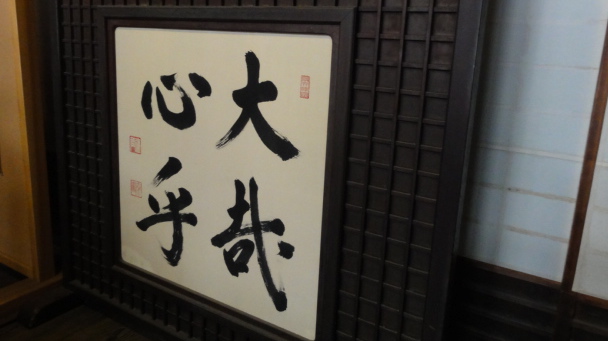By the chance from monthly Zen meditation practice in Kyoto, I attended to Master Yosai’s 800 years memorial ceremony in Kenninji-temple, Kyoto.
It was the ceremony to officially grant Buddhism (especially Rinzai school of Zen buddhism) commandments to attendants.
The ceremony was taken place from early in the morning until afternoon, and during the ceremony, attendants swore to live life together with the heart of the Buddha in the past, present and future while observing 10 commandments in daily lives.
Since that 10 commandments remind me of the base of yogic lifestyle, Yama and Niyama (yogic ethical rules), I’d like to introduce Yama and Niyama today.
Yama(”shall not” toward the life & world)
Yama is like our promise to all the living things and the world.
As we determine the direction of our thoughts and actions along with Yama, we can relieve the root cause of suffering and ignorance, such as violence, hostility, and desire.
There are 5 yamas, according to Patanjali’s Yoga Sutra.
- Ahimsa(Non-violence)
- Satya(truthfulness)
- Asteya(Non-stealing)
- Brahmacharya(Self-control on sex)
- Aparigraha(Non-possessiveness)
Niyama(”shall do” for ourselves)
Niyama is the rule of conducts for ourselves.
According to Yoga Sutra, Niyama also consist of 5 rules.
- Shaucha(purity)
- Santosha(contentment)
- Tapas(effort)
- Svadhiyaya(self-study)
- Ishvara-pranidhana(surrender to the “absolute”)
Buddhism (Zen) 10 commandments
Basically, yogic life is the life of observation and practice of Yama and Niyama.
However, if they are not easy to understand fully, I’ll share Buddhism (Zen) 10 commandments so that each Yama and Niyama meanings become much clearer.
- Not to kill the living things.
- Not to steal someone’s belongings.
- Not to disturb the clean relationships of men and women.
- Not to tell a lie.
- Not to get drunk and neglect your duty.
- Not to speak out someone’s mistake.
- Not to be arrogant and speak ill of the others.
- Not to be unwilling to serve others.
- Not to be agitated by the anger.
- Not to doubt the teachings of Buddha and Three treasure (Buddha, Dharma, and Monks).
By listening to some of these commandments, I could feel like, “O, this reminds me of that in Yama (or Niyama)”.
I usually don’t take much time to explain about these yogic philosophies, but personally I believe that living yogic lifestyle based on Yama and Niyama brings peace and calmness to our mind. It is not rigid at all.
So, if you’re seeking peace and calmness in your heart, please practice little by little.
If you’re interested in practicing Yama and Niyama in your daily living, please feel free to ask in the class.
Gassho
![]()
If you are living in Hyogo / Osaka and interested in yoga, pilates, and thai traditional massage, please check following links as well.
- YOGA (HATHA / YIN)
- PILATES
- Thai Traditional Massage
Seed Training welcomes your questions and bookings on yoga, pilates, and Thai traditional massage through contact form and telephone.
*You can take an initial consultation & short trial of Private / semi-private lessons (YOGA / PILATES) for free!
090-6756-5136
(I cannot get the phone when I’m having lessons, treatment, and moving. In such a case,please leave a message so that I can call you back later)

